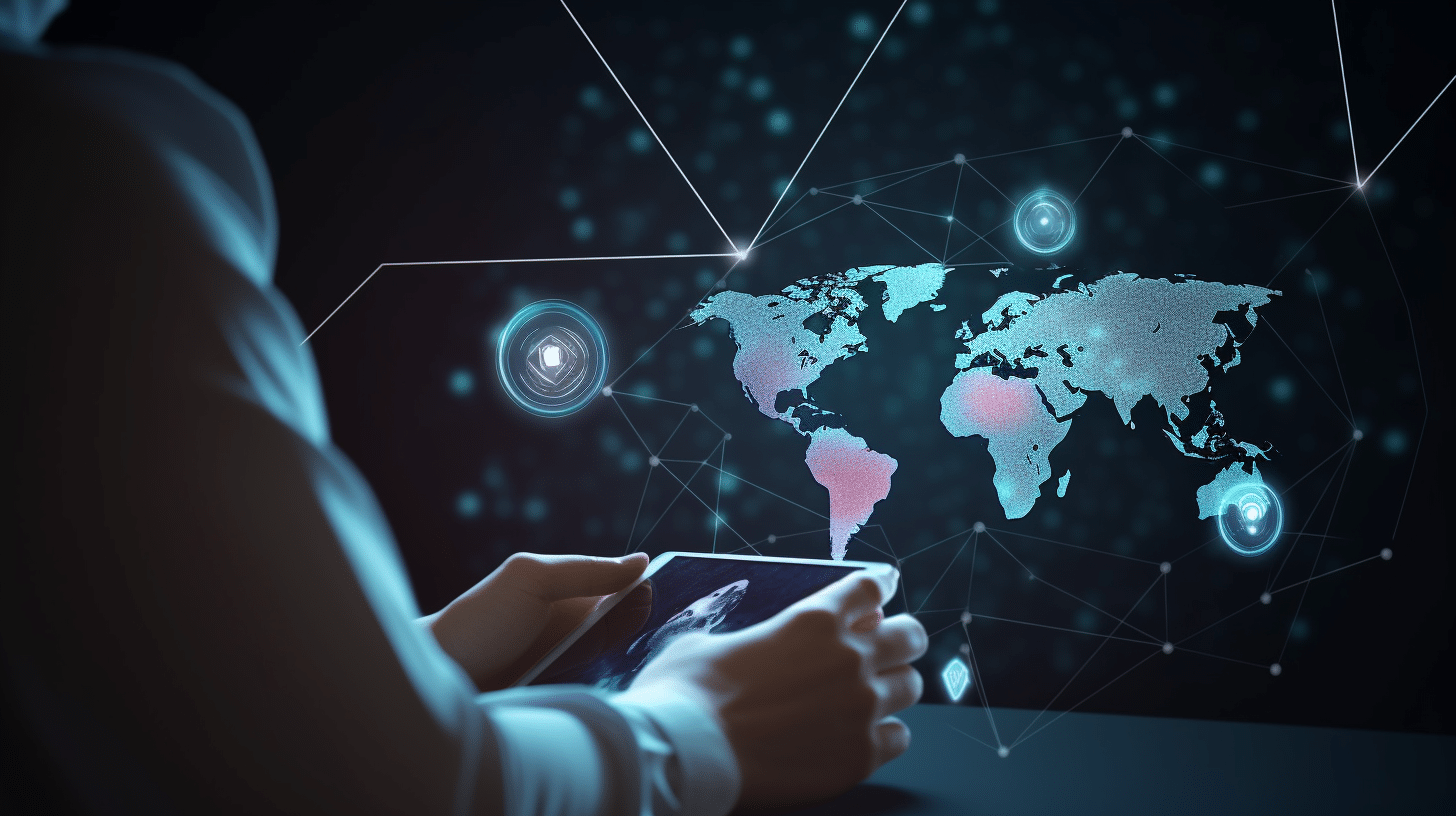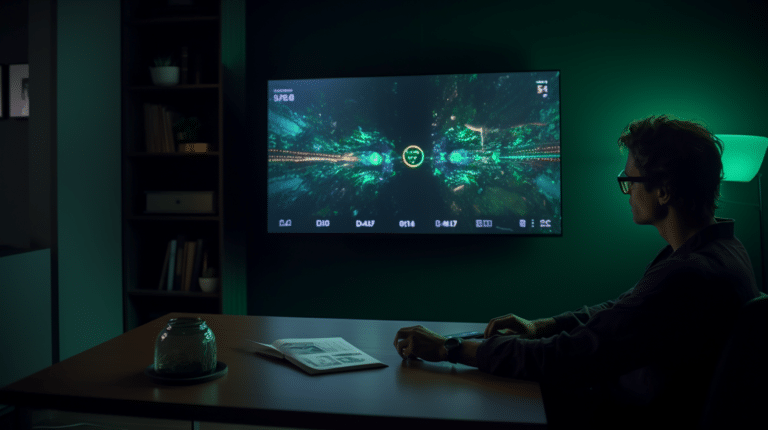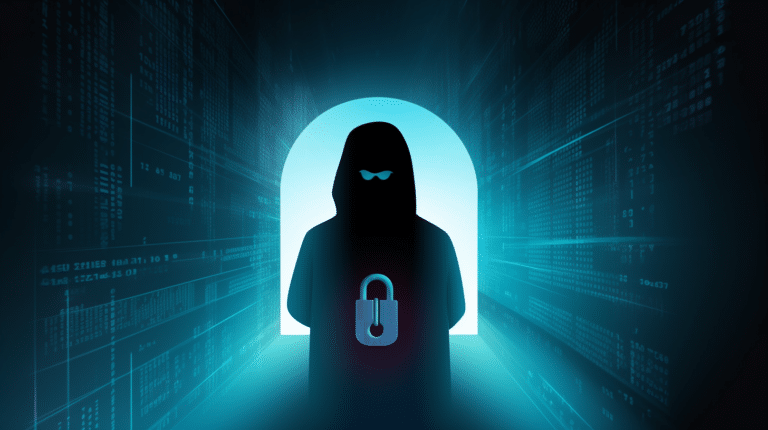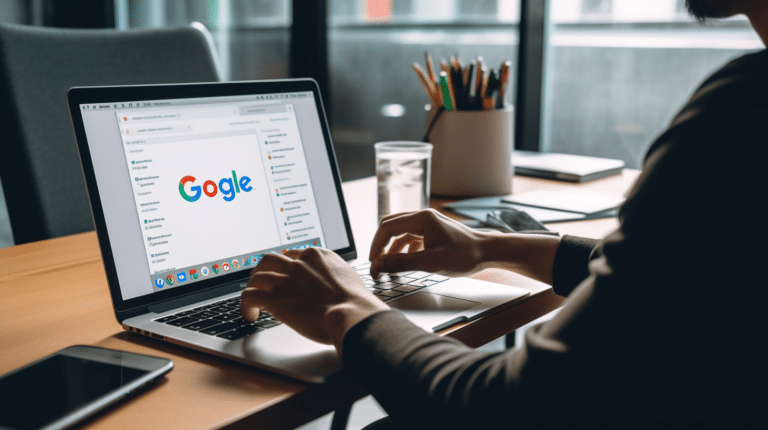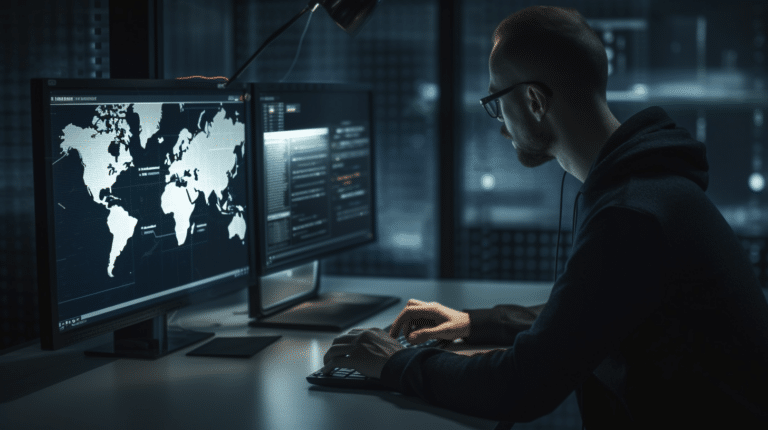The use of Virtual Private Networks (VPNs) has become increasingly popular as more people seek to protect their online privacy. VPNs function by routing your internet traffic through a secure, encrypted connection, effectively hiding your IP address from websites and obscuring your activity from your Internet Service Provider (ISP). However, a common concern among those considering using a VPN is whether it’s possible for their activities to still be tracked even with the protection of a VPN.
While VPNs offer a significant degree of privacy, they don’t provide complete anonymity. The level of protection a VPN offers largely depends on factors such as the reliability of the service, how it handles your data, and your own online behavior. Understanding the limitations and risks associated with VPN use can help users make informed decisions about their online privacy and security.
Key Takeaways
- VPNs significantly enhance privacy, but don’t provide complete anonymity.
- Reliability of the VPN service and user behavior affect the level of protection offered.
- Knowledge of risks and limitations of VPNs is essential for making informed privacy decisions.
Understanding VPNs
A VPN, or Virtual Private Network, is a tool designed to enhance the security and privacy of your online activities. It works by creating a secure connection between your device and a remote server, often in another country. This connection encrypts your data and masks your IP address, making it difficult for third parties to track your online activities or intercept sensitive information.
The backbone of a VPN service is its network of servers. These servers are strategically located across the globe, enabling users to choose different locations for their virtual connection. This not only helps maintain privacy by masking user locations but can also bypass geolocation restrictions on content.
One of the primary functions of a VPN is data encryption. This process scrambles your data in a way that makes it unreadable to anyone who might intercept it, such as hackers or government surveillance agencies. Various VPN protocols, such as OpenVPN or IKEv2, determine how your data is encrypted and transmitted between your device and the VPN server. A secure protocol is essential for keeping your online activities private and safe from prying eyes.
When choosing a VPN for its security features, it’s important to consider if the service keeps any logs of your online activities. Some VPNs maintain records of user activity, which could potentially be accessed by third parties. To ensure maximum privacy, look for a VPN with a strict no-logs policy.
By utilizing a secure network of servers, data encryption, and privacy-focused protocols. However, the level of protection a VPN offers depends on its reliability, server infrastructure, and commitment to user privacy. As a result, it’s crucial to choose a reputable VPN service with a proven track record in safeguarding user data.
Can A VPN Be Tracked?
A VPN (Virtual Private Network) is a popular tool for enhancing online privacy and security. It creates an encrypted tunnel between your device and a remote server, effectively hiding your IP address and making it harder for third parties to track your online activities. But can a VPN itself be tracked? Let’s explore this question further.
When you use a robust and reliable VPN, it becomes difficult for external parties to track your online activities. Because the VPN effectively hides your IP address and encrypts your data. Your ISP (Internet Service Provider) will only see that you’re connected to a VPN server, not the details of your online activities. However, this does not mean you’re completely anonymous.
One potential vulnerability in VPNs comes from logging policies. Some VPN providers keep logs of their users’ activities, which could potentially be accessed by law enforcement agencies, hackers, or other third parties. Therefore, it’s essential to choose a VPN service that follows a strict no-logs policy to minimize the risk of your data being tracked or exposed.
Another factor to consider is the location of the VPN server you’re connecting to. If the server is in a jurisdiction with strict data retention laws or high levels of government surveillance, there is an increased likelihood that user data could be monitored or accessed by authorities. To mitigate this risk, you can choose a VPN provider with servers in privacy-friendly jurisdictions.
Despite the security measures employed by most VPNs, it’s essential to remember that no system is foolproof. Skilled hackers or government agencies with sufficient resources could potentially intercept and decrypt VPN traffic. However, the level of effort, technology, and resources required to do so is usually quite high, meaning that the chances of being tracked when using a reputable VPN are relatively low for most users.
In summary, using a VPN significantly reduces the likelihood of being tracked online, but it does not provide complete anonymity. Your online behavior, the VPN provider’s logging policies, and the location of the VPN server are all factors that can impact the level of privacy and security you obtain from your VPN connection. Remain cautious and choose a trustworthy service to protect your online activities as effectively as possible.
VPN and Privacy
A Virtual Private Network (VPN) is a popular tool used to enhance privacy and maintain anonymity online. By encrypting your internet traffic and routing it through a secure server, a VPN can hide your actual IP address, making it harder for third parties to track your online activities.
One of the main advantages of a VPN is its ability to provide a more private browsing experience. When connected to a VPN, your ISP (Internet Service Provider) and other third parties can no longer see your browsing history or the websites you visit. Instead, they can only see that you are connected to the VPN server. This is essential for maintaining privacy online, as ISPs are often known to sell user data or even use it for targeted advertisements.
An important aspect of a VPN’s privacy features is the service provider’s no-logs policy. A no-logs policy means that the VPN does not keep any records of your internet activity while connected to their servers. This is crucial for ensuring that your data cannot be accessed by anyone, even if the VPN provider were to be compromised or requested to hand over user data by government authorities.
However, it’s essential to carefully review the VPN provider’s privacy policy before committing to their service. While some claim to have strict no-logs policies, they may still collect certain types of data such as connection timestamps, IP addresses, or bandwidth usage. A trustworthy VPN will have a clear and transparent privacy policy that outlines exactly what information, if any, is collected and for what purposes.
Although using a VPN can significantly improve your privacy online, it’s important to remember that it’s not a foolproof solution. Your level of anonymity largely depends on your online behavior and the reliability of the VPN service you choose. For instance, if you use a VPN and access a website while logged in to a personal account, that website can still identify you and associate your activity with your account.
In conclusion, using a VPN can greatly enhance your privacy online and help maintain your anonymity. However, it’s essential to choose a reputable VPN provider with strict no-logs policies and practice safe browsing habits to maximize the effectiveness of your VPN experience.
Avoiding Free VPNs
When considering a VPN to protect your online privacy, it is crucial to choose a reliable and trustworthy service. Free VPNs may seem like an attractive option, but they often come with significant risks and downsides compared to premium VPNs.
One of the primary concerns with free VPNs is their potential lack of security. Free services might not invest as much in their security infrastructure, making them more vulnerable to data breaches and leaks. Moreover, some free VPNs have been found to contain malware, putting your devices and information at risk.
Another issue with free VPNs is that they often have limited features and poor performance. Bandwidth restrictions, slow connection speeds, and a small number of server locations can make the user experience frustrating. In contrast, premium VPNs usually offer faster connections, more servers, and better overall performance.
A more alarming concern is that free VPNs might track and sell your data to third parties. The main revenue source for free VPN providers is often advertising, which means they may monitor your online activity and sell that information to advertisers for targeted ads. This goes against the core purpose of using a VPN, which is to protect your privacy.
Premium VPNs, on the other hand, typically have a strong commitment to user privacy. High-quality VPN providers like NordVPN follow strict no-logs policies, meaning they do not store any information about your online activity. Additionally, reputable VPNs use strong encryption protocols and have transparent privacy policies, ensuring that your data remains secure and private.
To ensure the best possible protection of your online privacy, it is worth investing in a reputable and reliable premium VPN service. By doing so, you can enjoy the full benefits of a VPN, including robust security, better performance, and peace of mind knowing that your data is not being compromised.
Dealing With Cookies and Advertisements
Cookies are small text files created by websites to store user-specific information, such as login data, user preferences, and browsing history. While cookies can improve your online experience by allowing websites to load faster and remember your preferences, they can also be used for tracking your online activities by advertisers, which may lead to targeted ads and spam.
A VPN (Virtual Private Network) helps you maintain privacy and security by hiding your IP address, encrypting your internet traffic, and tunneling your connection through a remote server. As a result, third parties such as ISPs and hackers cannot see your online activities. When it comes to cookies, using a VPN may not be enough to completely stop tracking and targeted advertisements.
Although connecting to a VPN can protect your identity and location, it does not eliminate cookies stored in your browser. To achieve better online privacy, it’s advised to regularly clear your browser cookies or use a browser extension that blocks or controls cookies.
In addition to cookies, some advertisers have started using browser fingerprinting to track users. This technique collects information about your computer, browser, and software settings to create a unique “fingerprint” of your device and use it for identification purposes. Using a VPN cannot prevent browser fingerprinting, but you can take steps like altering your browser settings or installing privacy-focused browser extensions to minimize its impact.
To recap, a VPN is a great tool to enhance your online privacy and security by hiding your IP address and encrypting your internet traffic. However, to deal with cookies and targeted advertisements effectively, you should also take additional measures like clearing cookies regularly, using privacy-focused extensions, and protecting yourself against browser fingerprinting. With these combined efforts, you can enjoy a safer and more private browsing experience.
Online Traffic Encryption and Security
A virtual private network (VPN) is a tool that encrypts your online traffic and enhances your security while browsing the internet. When you connect to a VPN server, your IP address changes, and the data traffic on your device gets encrypted, creating a private network between your device and the VPN server source.
The encrypted connection established by a VPN prevents anyone, including your internet service provider (ISP) and the websites you visit, from tracking you source. This is particularly helpful for protecting your privacy when using public Wi-Fi networks, as a well-configured VPN can prevent others on the same network from accessing your traffic source.
However, not all VPNs are created equal. Some free VPNs may encrypt your connection, but they may not have strict no-log policies, meaning they could potentially retain records of your online activities. If you are concerned about being tracked, it is important to choose a VPN that has a transparent and strong privacy policy source.
When it comes to the security of the connection between the VPN server and the internet, a VPN will encrypt the traffic if you visit a website using a secure protocol (HTTPS) source. Keep in mind that your online activities can still reveal your identity, even with a VPN in place, if you provide personal information or if your browser settings disclose identifiable information.
In summary, a VPN can provide a significant layer of security and encryption for your online traffic, but it is essential to choose a reputable VPN provider with a strong commitment to user privacy to ensure the best protection against being tracked.
Dealing With Malware and Cyber Threats
While a VPN can help protect your privacy and data, it’s essential to understand that a VPN cannot fully protect you from malware and cyber threats. In order to effectively deal with potential online risks, it’s crucial to have additional security measures in place, such as antivirus software, firewalls, and proper online habits.
Malware, which includes ransomware and spyware, is a significant risk on the internet. These malicious programs can infiltrate your devices and cause damage, data theft, or other negative outcomes. A VPN alone cannot prevent or recognize such threats, as its main function is to shield your web traffic and IP address from being tracked.
Hackers and cybercriminals are known for using a variety of schemes, including phishing attacks, to try and gain unauthorized access to personal information, accounts, and data. Although a VPN can make it harder for an attacker to track you online, it cannot stop phishing emails or prevent you from clicking on a malicious link.
To ensure a more comprehensive protection against online threats, it’s important to consider employing multiple layers of security. A well-maintained antivirus software and firewall can work together with a VPN to create robust defense mechanisms. These tools can actively scan for and prevent infection by malware, block unauthorized access, and filter out suspicious communications.
Furthermore, practicing safe online habits is essential in staying protected against a myriad of cyber threats. Being cautious, not clicking on unknown links, and avoiding suspicious websites can significantly reduce the likelihood of falling victim to malware, hackers, and phishing attacks. By combining a reliable VPN with additional security measures and responsible browsing, you can substantially minimize your exposure to online risks.
Protection From Government And ISPs
A VPN, or Virtual Private Network, is a popular tool used to enhance privacy and security while browsing the internet. Many people primarily use VPNs to protect themselves against potential tracking and surveillance from government agencies and Internet Service Providers (ISPs) 1.
When you access the internet using a VPN, your connection is encrypted and rerouted through the VPN provider’s server 2. This process effectively masks your IP address and makes it difficult for ISPs and other third parties to monitor or trace your online activity.
However, it’s important to note that while VPNs can offer significant privacy benefits, they are not a complete solution against government and ISP tracking. In some cases, government agencies may still be able to identify if you are using a VPN 3. While they may not know your exact online activities, they could potentially detect the use of a VPN through various technical means.
ISPs, on the other hand, are often legally required to retain customer data and track their online activities for a certain period due to data retention laws 4. These laws are in place to help governments and law enforcement agencies fight terrorism and locate criminals. While a VPN can obscure the specifics of your online activity, this does not exempt you from data retention laws and policies in your country.
Despite these limitations, using a VPN is still a valid measure to increase your privacy and security online, especially when compared to browsing without one. The encryption provided by a VPN makes it significantly more difficult for governments and ISPs to monitor your internet usage.
It’s essential to choose a reputable and secure VPN provider that prioritizes its users’ privacy. A quality VPN service should have a clear privacy policy, offer strong encryption, and refrain from storing or sharing your personal data with third parties 5.
In summary, while a VPN can provide a valuable layer of protection against government and ISP tracking, it is crucial to remain aware of its limitations and to choose a reliable VPN provider to ensure the best possible privacy and security.
Location and Jurisdiction
When choosing a VPN service, one of the most crucial factors to consider is the location and jurisdiction of the provider. The location of a VPN provider can have a significant impact on the level of privacy and security offered to users. This is mainly because the local laws and regulations governing data retention and surveillance might differ between countries.
For instance, the British Virgin Islands is an attractive jurisdiction for VPN providers due to its strong privacy laws and minimal government interference. Operating in this region allows VPN companies to ensure that their users’ data remains safe from prying eyes, as they are not subject to stringent data retention laws or surveillance from intelligence agencies.
Panama is another jurisdiction known for its strong privacy protections and lack of data retention requirements. VPN providers based in Panama can offer a higher degree of privacy to their users, as the country does not enforce any mandatory logging or monitoring of online activities.
Switzerland is also a popular choice for VPN providers, thanks to its strong privacy laws and neutral political stance. Swiss VPN companies can provide a secure service and are generally known to be reliable, as they are not part of any international intelligence-sharing agreements, such as the Five Eyes, Nine Eyes, or Fourteen Eyes alliances.
In summary, the location and jurisdiction of a VPN provider play a significant role in determining the level of privacy and security offered to users. By opting for a provider based in a country with strong privacy laws—such as the British Virgin Islands, Panama, or Switzerland—users can feel more confident in the protection of their data and online activities.
Privacy and Social Media
Even when using a VPN, privacy on social media platforms can still be compromised. A VPN does a great job of encrypting your web traffic and hiding your IP address, but it is not a foolproof solution for complete anonymity. When you engage in online activities, particularly on social media platforms like Facebook and Google, you need to be cautious about sharing personal information.
Managing your privacy settings on social media is crucial to safeguarding your online presence. Be sure to limit your audience for your posts, as well as any information you provide, such as your location, contact details, and employment history. Additionally, avoid sharing your current location when using location-based features.
It’s also important to understand that social media platforms may use other tracking methods, such as using cookies and collecting data about your device or browser. VPNs cannot protect you from these types of tracking techniques, so consider using privacy-focused tools and extensions, such as cookie blockers and privacy-conscious search engines, to further protect your online activities.
In conclusion, while a VPN can greatly enhance your privacy and security online, it’s essential to remain vigilant about the information you share on social media platforms. Utilize privacy settings, be cautious about sharing personal information, and use additional tools to protect yourself from social media tracking. Remember, achieving privacy and anonymity online is a combination of using reliable technology and adopting responsible behavior.
Using Tor with VPN
Tor and VPN are two technologies that provide privacy and security when browsing the internet. They work differently, but both have their advantages and drawbacks. Combining them can result in additional layers of protection, making you more anonymous online.
Tor, or The Onion Router, is a network that allows users to access websites and services anonymously. It does this by routing your traffic through multiple servers, each of which adds another layer of encryption. This makes it difficult for anyone to see who you are and what websites you visit. The main drawback of using Tor is the slower browsing speed due to the additional routing.
A VPN, or Virtual Private Network, encrypts your internet traffic and routes it through a server located somewhere else in the world. This makes it appear as if your data is coming from that server rather than your actual location. VPNs are generally faster than Tor and can provide privacy and security by hiding your IP address and encrypting your data.
Using Tor with a VPN can further increase your privacy and security. You can first connect to a VPN and then use the Tor network. This way, your internet service provider (ISP) and the VPN provider cannot see that you are using Tor, because your traffic is encrypted before it reaches the Tor network.
However, there are also potential pitfalls to be aware of when using Tor and VPN together. VPN providers are usually required to keep logs of user activity for legal reasons. If a VPN provider is untrustworthy or compromised, they may be able to see your activity through their server. Furthermore, using Tor with a bad VPN can actually decrease your anonymity if the VPN provider receives valid requests from law enforcement to track your activities.
To get the best protection when using Tor with a VPN, it’s important to choose a reliable and trustworthy VPN provider. Researching the company’s privacy policies, jurisdiction, and reputation can help ensure that you are using a secure and private service.
In summary, using Tor with a VPN can enhance your privacy and security online. Be aware of the potential risks and choose a reputable VPN provider to ensure maximum protection.
Detecting Leaks
Detecting leaks in your VPN is essential to ensure that your personal information is protected and not exposed while browsing the internet. There are three common types of leaks you should be aware of: IP leaks, WebRTC leaks, and DNS leaks.
An IP leak occurs when your real IP address becomes visible over the VPN, which can reveal your location and undermine the VPN’s purpose. To test if your VPN is suffering from an IP leak, you can use online tools such as ipleak.net. These tools will show your IP address before and after connecting to the VPN, so you can determine if your true IP is exposed or not.
DNS leaks occur when your device continues to use your Internet Service Provider’s (ISP) DNS servers instead of the VPN’s DNS servers. Your browsing history can still be monitored by your ISP since DNS requests are not encrypted. To test for DNS leaks, you can use websites like dnsleaktest.com. Running a standard or extended test will reveal if your DNS queries are being routed through your VPN or directly to your ISP.
WebRTC leaks can reveal your actual IP address, even if you’re using a VPN. WebRTC is a communication protocol that operates in most popular web browsers like Firefox and Chrome. Browser-based applications, such as audio and video chat services, often use WebRTC to function. To check for WebRTC leaks, you can visit websites like browserleaks.com that test your browser for WebRTC-related vulnerabilities and provide necessary information on potential leaks.
In conclusion, regularly testing your VPN for leaks is critical to maintaining your online privacy. Utilizing online tools to detect IP leaks, DNS leaks, and WebRTC leaks can save you from unwanted monitoring and tracking by ISPs, websites, and government agencies.
Data Protection From Employers
Employers may sometimes monitor their employees’ online activities to ensure compliance with company policies, data security, and productivity. Using a VPN can provide some level of privacy and protection from such monitoring.
Business VPNs are often provided by companies to secure their network and data. These VPNs encrypt the data between your device and the company’s servers, preventing hackers, ISPs, or other third parties from intercepting your data. However, when using a business VPN, your employer still has the ability to monitor your activity within the company’s network.
If you choose to use a personal VPN to protect your online activities from your employer, make sure to comply with company policies. Some employers may not allow the use of personal VPNs on their network, as they can circumvent content filters and potentially introduce security risks.
One advantage of using a personal VPN is that your browsing habits and personal data are hidden from your employer. The encrypted connection ensures that the data being transmitted cannot be intercepted or read by the employer or any third party.
However, it is essential to choose a reputable VPN service to ensure proper data protection. Your VPN provider should have strict privacy policies and not log your activities. Keep in mind that using a personal VPN does not make you completely anonymous or immune to tracking, and some advanced monitoring techniques can still detect VPN use.
In summary, while a VPN can offer increased privacy and data protection from employers, it is important to abide by company policies and select a reliable VPN service. Remember that a VPN is just one aspect of overall online security and should be used in conjunction with other safety measures.
Obfuscation and Its Role In VPN
Obfuscation is a technique used by some VPN services to make it harder for third parties, such as government agencies or network administrators, to detect and identify VPN traffic. By using obfuscation methods, VPN traffic can appear more like regular HTTP traffic, which helps users bypass VPN blocking and maintain their privacy online.
One common obfuscation technique is the use of obfuscated servers. These servers disguise VPN traffic by wrapping it in a protective layer or changing its digital fingerprint, thus making it difficult to be recognized as VPN traffic by firewalls or deep packet inspection tools. This is especially important in countries with restrictive internet policies or for users under strict network regulations.
Another method for obfuscation is the implementation of Obfsproxy, which was originally a Tor subproject designed to tackle the blocks on the Tor browser. Obfsproxy works by transforming your internet traffic to mimic regular HTTP traffic, effectively hiding the fact that you’re using a VPN. This method can be particularly useful when dealing with VPN blocks or censorship measures in certain regions.
Some VPN providers offer a selection of obfuscated servers that are specifically designed for use in countries or networks with strict internet controls. By connecting to these servers, users can enjoy the benefits of a VPN, such as increased privacy and security, without drawing unwanted attention to their online activity.
Using a VPN with obfuscation features can greatly enhance your online privacy by making it difficult for third parties to detect your VPN use. However, it’s essential to note that even with obfuscation, it might still be possible for skilled individuals or organizations to track you if you are their top priority. That being said, obfuscation adds an extra layer of protection and is a valuable component in any privacy-focused VPN solution.
VPN Services and China
VPNs, or Virtual Private Networks, are often used to bypass internet restrictions and maintain online privacy. In China, the government has implemented the Great Firewall, a sophisticated system designed to censor and control access to foreign websites. This has made VPNs an essential tool for users in the country.
Although VPNs can be an effective way to bypass the Great Firewall, it’s important to understand that using a VPN in China is not a guaranteed solution for avoiding detection. With the Chinese government continuously updating its censorship measures, some VPN services might be blocked or restricted. Nonetheless, there are still VPN providers that can successfully overcome these obstacles and provide users with reliable connections.
One of the primary concerns when using a VPN is the potential for being tracked. While a VPN does encrypt your web traffic and mask your IP address, it is not an absolute guarantee of anonymity. Your online behavior and the reliability of the VPN service you choose play a significant role in maintaining your privacy. The Chinese government actively tries to track VPN users, so selecting a reputable and secure VPN provider is essential.
Factors to consider when choosing a VPN for use in China include the provider’s server locations, connection speeds, and robust security features. A VPN with multiple server locations, including those outside China, will help ensure your access to blocked content. Connection speeds are crucial for maintaining a pleasant browsing experience, and strong encryption is key to protecting your data from potential surveillance.
In conclusion, using a VPN in China can help you bypass strict internet restrictions imposed by the Great Firewall. While it may not guarantee complete anonymity, choosing a reliable and secure VPN service can go a long way in maintaining your online privacy. Always remain cautious and consider the risks associated with using a VPN in China, but know that it can be an invaluable tool for accessing a freer internet.
Avoiding Browser Fingerprinting
Browser fingerprinting is a technique that allows websites to collect information about your device and browser settings, creating a unique digital footprint that can be used for tracking purposes. Although VPNs can help protect your online privacy by encrypting your data and hiding your IP address, they may not be enough to prevent browser fingerprinting. To minimize your digital footprint and maintain a higher level of privacy online, follow these recommendations:
Update your browser regularly and use privacy-focused browsers, such as Firefox, Brave, or Tor. These browsers are designed with privacy in mind and have built-in features to limit fingerprinting.
Disable JavaScript or limit its usage. JavaScript is often used by websites to collect browser fingerprinting data. Running a browser extension like NoScript can help you selectively enable JavaScript only on trusted sites.
Use browser extensions that specifically target fingerprinting, such as Privacy Badger or CanvasBlocker. These extensions can help reduce the information collected by websites, making it more difficult for them to create a unique fingerprint.
Adjust your browser’s settings to block third-party cookies and tracking mechanisms. This will limit the ability of advertisers to track your online activities, which can be a significant contributor to your digital footprint.
Consistently clear your browser history, cache, and cookies. Regularly clearing this data can help prevent websites from tracking your online activities and reduce the chances of having a unique browser fingerprint.
While it can be challenging to completely avoid browser fingerprinting, implementing these strategies can significantly reduce the amount of information that websites can collect about your browsing activities and device. By having a smaller digital footprint, you can maintain a higher level of privacy and minimize the impact of tracking technologies on your online experience.
Firewalls and VPN
A firewall is a security measure that monitors and controls incoming and outgoing network traffic based on predetermined rules. It serves as the first line of defense against various cyber threats, ensuring unauthorized or harmful traffic is blocked, while allowing legitimate traffic to pass through. On the other hand, a VPN (Virtual Private Network) is a technology that creates an encrypted tunnel between your device and a remote server, effectively masking your IP address and anonymizing your online traffic.
Both firewalls and VPNs play crucial roles in ensuring your online security. However, they serve different purposes and it is important to understand how they complement each other. Using a VPN does not render a firewall obsolete, and vice versa.
While firewalls are primarily focused on protecting your device or network from unauthorized access, VPNs are designed to safeguard your data as it travels through the internet. For example, when using public Wi-Fi networks, a VPN can encrypt your traffic, making it much more difficult for malicious actors to intercept or monitor your online activities.
A robust and effective cybersecurity strategy should include the use of both firewalls and VPNs. Firewalls protect your devices and local networks from external threats, while VPNs add an extra layer of encryption, allowing you to browse the internet securely and anonymously. However, it is important to note that using a VPN does not make you completely untraceable. Certain factors, such as the VPN provider’s logging policies and the potential for unexpected disconnections, can still result in your activities being monitored.
In summary, firewalls and VPNs are essential tools in maintaining online security and privacy. By incorporating both measures into your cybersecurity strategy, you provide a solid foundation for protecting your devices, networks, and personal data from unwanted intrusions and snooping.
Frequently Asked Questions
Does VPN prevent location tracking?
A VPN can help prevent location tracking by masking your IP address and encrypting your internet traffic. This makes it more difficult for third parties to track your online activities and pinpoint your physical location. However, it’s important to note that a VPN is not foolproof and may not offer complete anonymity. Some sophisticated techniques might still be able to determine your location or activities.
Can I be tracked by ISP while using VPN?
When using a VPN, your ISP will see that you’re connected to a VPN server, but won’t be able to see the websites you visit or the content of your data transmissions. However, the VPN provider can see your online activities, so it is essential to choose a trustworthy VPN service with a strict no-logs policy, meaning they do not store any information regarding your usage of their service.
Can browsing history be tracked through VPN?
Your browsing history while on a VPN cannot be directly tracked by your ISP or other third parties since the VPN encrypts your data and hides your IP address. However, as mentioned earlier, the VPN provider itself has access to your browsing history. Again, choosing a reliable VPN service with a strict no-logs policy is crucial to maintain your privacy.
How long does it take to track a VPN?
The time it takes to track a VPN user varies significantly depending on several factors. This includes the VPN provider’s security and privacy policies, the user’s online activities, and the capabilities of the tracking agency. Some VPN users might never be traced, while others could potentially be found within a short period. The stronger the encryption and privacy features of the VPN you use, the harder it will be for someone to track you.
What does a VPN not hide?
While VPNs can provide a considerable level of privacy and anonymity, there are things they cannot hide. For example, a VPN cannot hide your internet usage from your VPN provider, and it can’t protect you from malware or phishing attacks. Additionally, if you’re not careful, you could still give away your personal information by using online services like social media or entering personal data on websites without adequate security.
Can VPN be hacked?
Though VPNs offer strong security and encryption, vulnerabilities can still be exploited by skilled hackers. This is particularly true if the VPN software has unpatched security flaws or if your device has been compromised by a virus or malware. It is crucial to keep your VPN software updated and practice good internet hygiene to minimize the risk of hacking.
